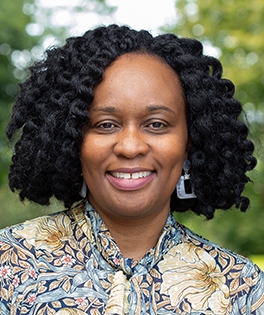Cadmus: Facilitating open access to legal scholarship and information
 Femi Cadmus
Femi Cadmus
Last year’s Fastcase 50, an annual list recognizing entrepreneurs and innovators in law and legal technology, included just one law school librarian: Femi Cadmus, who joined the Duke Law faculty in November as the Archibald C. and Frances Fulk Rufty Research Professor of Law, associate dean of Information Services and Technology, and director of the J. Michael Goodson Law Library.
Cadmus, who was recognized for her efforts to promote open access to legal scholarship, is a longstanding leader in using digital technology to deliver information in innovative ways. In 2017, while serving as Cornell University’s Edward Cornell Law Librarian, associate dean for Library Services and professor of the practice of law, Cadmus helped launch LawArXiv, a free open-access legal repository owned and maintained by members of the scholarly legal community as a partnership between Cornell’s library and those at four other institutions.
Also under Cadmus’s leadership, the Cornell law library joined with Yale and the International Labor Organization to develop Global Online Access to Legal Information, or GOALI, to provide free or low cost online access training and law-related academic and professional content available to eligible institutions in more than 115 low- and middle-income countries. Many of the academic and professional peer-reviewed journals, publications, and databases from leading academic publishers covered by GOALI would otherwise be hidden behind paywalls, Cadmus said.
The broader aim of the GOALI initiative is to strengthen legal frameworks and institutions and further the rule of law in developing nations through improved legal research and education.
Cadmus, who currently serves as president of the American Association of Law Libraries (AALL) and has explored the impact of technology on law libraries, law librarianship, and legal instruction in her scholarship, also was instrumental in the development of Cornell’s Legal Research Clinic, in which upper-level students work under the supervision of attorney-instructors to complete research requests from nonprofit organizations and entrepreneurs, individuals, and legal services providers in the community.
Discussing the biggest challenges in law librarianship in the November/December 2018 issue of the AALL Spectrum, Cadmus observed that technological disruption presents the opportunity for legal information professionals to update and upgrade traditional skills and expertise or risk becoming obsolete and irrelevant. Her advice: “Stay relevant, be willing to be flexible, responsive, and update your skills. Law librarians are here to advocate for the profession, to give stakeholders the tools that they need to advocate for themselves, and to respond to their needs.”